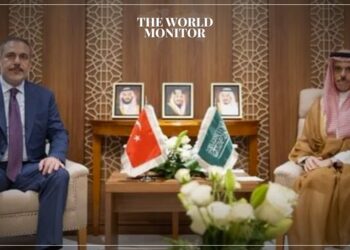In a recent update, the United Nations has indicated that the Sudanese economy has witnessed a sharp decline, plummeting by up to 42%, due to ongoing conflicts that have been ravaging since mid-April.
On Sunday, the UN Secretary-General Antonio Guterres presented a detailed report to the International Security Council regarding the current situation in Sudan and the activities of the UN mission in the country.
Decline in Economic Activity Detected Through Remote Sensing
The report mentions that remote sensing tools, which monitor the emissions of nitrogen dioxide in the troposphere over Khartoum, have been used as an indicator of economic activity. The findings from these tools suggest an economic slump ranging between 33% to 42% in the initial weeks since the conflict erupted.
The turmoil has significantly hampered economic activity. Sudan’s productive capacities have been under grave threat. Key infrastructural damage, along with harm to the financial sector, private properties, food manufacturing facilities, and markets, has led to a halt in production and economic operations.
Mass Unemployment and Urgent Need for Financial Support
Due to the ongoing strife, mass unemployment has spiked. “People are in dire need of short-term financial aid and mid-term employment opportunities,” the report pointed out.
Public institutions, including the Khartoum branch of the Central Bank of Sudan, have faced rampant looting and destruction. Commercial banks weren’t spared either, resulting in substantial financial losses and eroding confidence in the banking system.
Shortage of Essential Goods Sends Prices Soaring
Furthermore, the report highlighted a severe shortage of essential food items. This shortage, coupled with price surges, has made it increasingly challenging for the populace to afford basic necessities such as bread, flour, sugar, and cooking oil.
Sudan, located in the northeastern part of Africa, has a history of conflicts, both internal and external. Over the years, the nation has experienced multiple civil wars, political unrest, and other forms of strife.
The current conflict, which started in mid-April, has further deteriorated the nation’s socio-economic structure, bringing hardships to its citizens and causing international concerns. The recent report by the UN sheds light on the depth of this crisis and calls for global attention and support.






